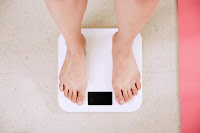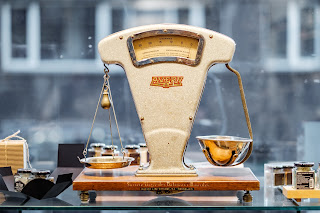Why diets don't work
Hey guys, I’m back with a post that I’m very passionate
about. It is quite long, so get a cup of tea and get comfy!
Diets are often promoted as a quick fix to lose weight and I’m against
them for a number of reasons.

Short answer:
Long answer:
- You gain the weight back after
- Any dietary changes need to long term and sustainable
- They demonise certain food groups
- They encourage restriction which can lead to disordered eating
- Weight doesn’t always indicate health
- They don’t help people understand nutrition
What are calories and how do we gain weight?
To make everything easier I’m going to explain what calories
are. Calories are a unit of energy. They are often displayed as kcal. The
average adult man needs 2500 calories and the average adult women needs 2000
calories a day. This gives us the energy to keep our body working on a daily
basis.
These figures are an average so each person’s individual needs will vary
based on things like age, physical activity, and health. Every food and drink
has calories, apart from water. The calories in foods and drink come from
macronutrients or alcohol. Every food is comprised of one or more of the
macronutrients - carbohydrates, fat, and protein.
They give us energy in the
form of calories as shown:
- 1g of protein has 4 calories
- 1g of carbohydrates has 4 calories
- 1g of fat has 9 calories
- 1g of alcohol has 7 calories
Weight gain is very complex, and many factors can affect it but
to simplify it, it's calories in versus calories out. So if your body needs 2000 calories a day and you consume 2000
calories you will maintain your weight. If you need 2000 calories and consume
2500 calories you will gain weight. If you need 2000 calories and consume 1500
calories you will lose weight.
This weight change happens over time so having
one day of excess calories won't lead to instant weight gain. Just like how a
quick fix diet won't work either with instant weight loss.
You actually need to
consume about 3500 excess calories to gain 1 pound in weight. You need to have a deficit
of 3500 calories to have 1 pound of fat loss. But, this number changes as your
weight changes.And the amount of energy you need daily depends on your body weight
so it’s not that simple.
Now, onto why I don’t like diets...
You gain the weight back:
This is often called ‘yo yo’ dieting where your weight
fluctuates up and down like a yo yo. There's a never ending cycle of losing
weight, so you think the diet is working and slip back into old eating habits,
then you regain the weight, start a new diet, lose weight and so on.
This is
also because most diets are essentially trying to get a calorie deficit – where
you consume less calories than you need to maintain your body weight. And once
you stop this calorie deficit and start eating more calories as you did before,
the weight will come back.
This links to my next point about making a
sustainable change that you can do for a long time.
You need to make sustainable dietary changes:
By definition, diet is the food a person regularly eats. But it
is now known as a restrictive eating pattern to lose weight. The problem with
this is that it implies that you go on a diet to lose weight, and then go back
to your normal eating habits and this just doesn’t work.
For example, if you
normally eat bread, pasta and rice and then go on a low carb diet and
drastically cut them out of your diet for a month you're going to struggle. How
long will you be able to cut them out for before wanting to eat them again?
Will you stop eating them forever? This isn’t a long term solution to weight
loss.
You shouldn’t have to completely cut out foods you enjoy which diets
often tell you to do. You shouldn’t have to be desperate for a cheat day or waiting for your diet to end. You should enjoy your food. Making changes to your diet that you can maintain the long term is the best way to lose weight. So it can't be anything too drastic
This leads to my next point
about demonising food groups.
They demonise food groups:
Let me just clear this up now, there is no such thing as bad
food. Yes, some foods have more nutrients than others, but this doesn’t mean
they’re bad. Food is so much more than the nutrients it contains. It can be a way to socialise, bring people together, or simply for enjoyment.
Low carb diets ignore the
fact that our body runs on the energy from carbohydrates and they also provide
nutrients like vitamin B and fibre. Low fat diets ignore the fact that we need
fat for the absorption of vitamin A, D, E and K and that fat is an essential
part of every cell in our body. Fat also makes food taste nicer and products
that are labelled low fat often have extra sugar or salt added to make up the
taste.
Demonising
foods is not the answer. A healthy diet includes
all foods and we shouldn’t have to cut things out. Cutting foods out unnecessarily can do more harm than good and could lead
to nutrient deficiencies.
They don’t help people understand nutrition:
No matter how healthily you eat, if you have excess
calories, you’ll gain weight. Certain diet programmes, say you can
eat unlimited amounts of what they call ‘free foods’ or foods in a 'green' category without having to track
them. This is usually foods with a lower calorie density like lean meat, fruit and veg, eggs, and pasta. This
idea of letting people eat whatever they want as long as it’s in a certain category
doesn’t help people understand what they're eating or the calorie value of foods.
Calorie counting diets don’t think about nutrients, but
nutrients aren’t the be all and end all. For example, you could have 100
calories of grapes or 100 calories of ice cream. They are worth the same amount
of energy, but the grapes will have vitamins and minerals that the ice cream
won't. But you might not have had ice cream for a while and find it more
enjoyable to eat.
It also doesn’t look at the volume of food. 100 calories of
grapes are about 50 grapes (or half a 400g punnet) while 100 calories of ice
cream is roughly one scoop. Simply reducing food to calories in versus calories
out doesn’t do it justice. It doesn’t help you understand the different nutrients
food can have or the feelings linked to the food.
For my other two points, you can find the full posts:
I hope you’ve enjoyed this post and it gave you some food
for thought about diets and why they're not the miracle fix they're claimed to be.
Bye for now! 👋
References:
Calories: https://www.nhs.uk/live-well/healthy-weight/understanding-calories/
and https://www.nejm.org/doi/full/10.1056/NEJMsa1208051
and https://www.todaysdietitian.com/news/exclusive0612.shtml
Weight regain: https://onlinelibrary.wiley.com/doi/full/10.1002/oby.21538 and https://www.ncbi.nlm.nih.gov/pubmed/25608460 and https://jandonline.org/article/S0002-8223(06)00004-6/abstract
Diets demonise food groups: https://www.nhs.uk/live-well/healthy-weight/why-we-need-to-eat-carbs/ and https://www.nhs.uk/live-well/eat-well/different-fats-nutrition/
Don’t understand nutrition: https://www.slimmingworld.co.uk/what-can-i-eat
and https://quadram.ac.uk/UKfoodcomposition/foods/grapes-average/ and https://quadram.ac.uk/UKfoodcomposition/foods/ice-cream-dairy-vanilla-soft-scoop/



.jpg)

Comments
Post a Comment